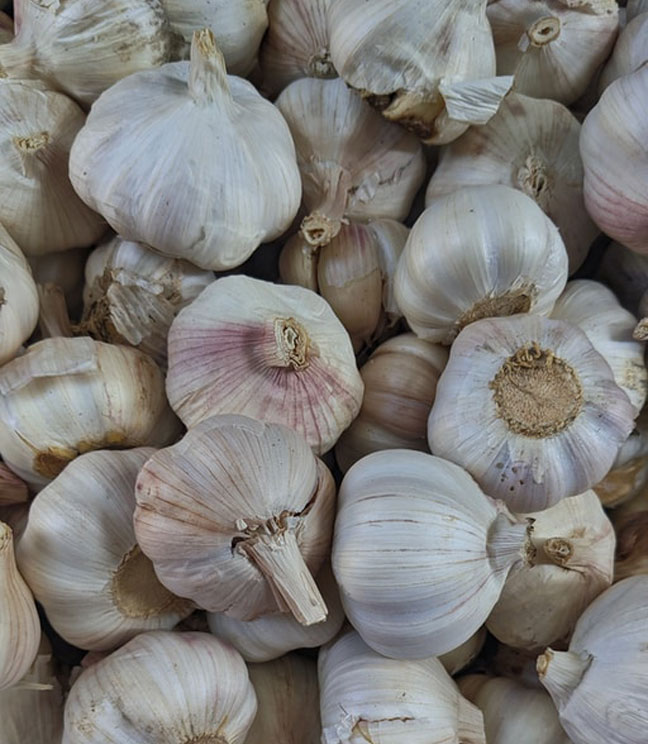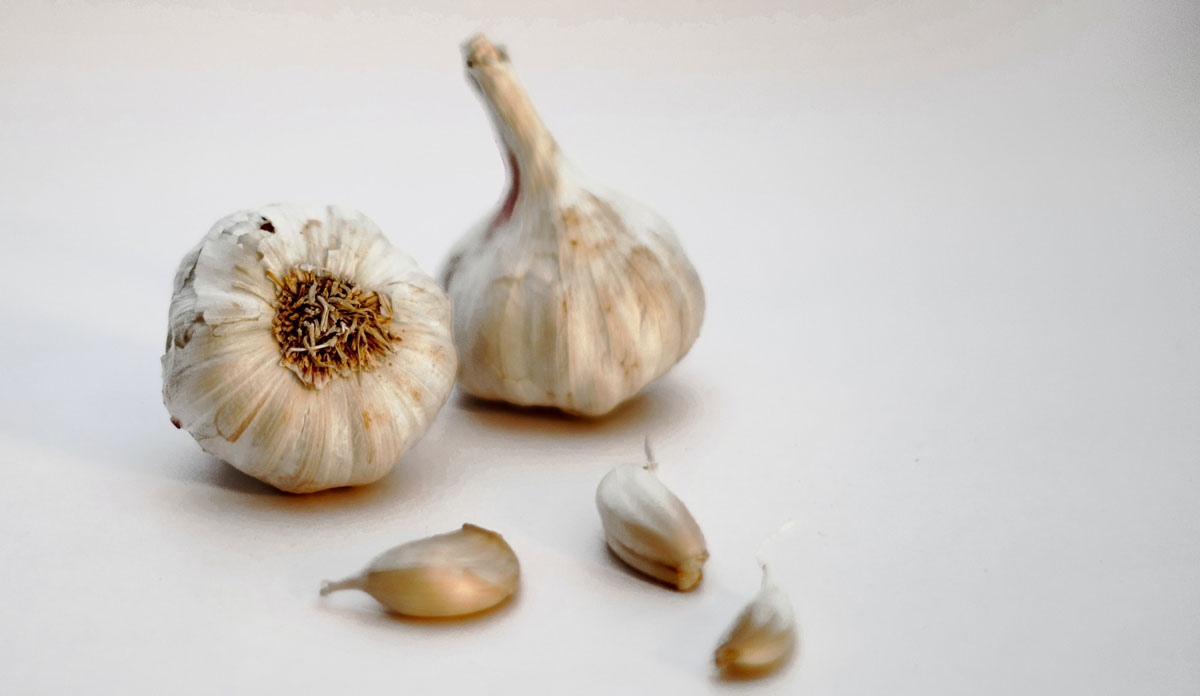In 1858, the scientist LOUIS PASTEUR discovered that garlic had an anti-bacterial activity because of allicin. Currently, there are studies that confirm that it may be effective against numerous bacteria, among them salmonella and escherichia coli. The positive effects for microbial flora in dental plaque have also been studied.
Owing to garlic’s decongestant properties, if you have a cold or suffer from sinusitis, it may prove to be a great relief. Additionally, it is highly-effective as a natural antibiotic when treating lung problems. How to use: inhale as a vapour or prepare a syrup with a garlic base.

Digestion is improved because garlic stimulates the gastric acids and food is properly digested and absorbed.

Garlic is rich in vitamin B. As a result, we can avoid having multiple problems, such as thrombosis or coronary artery illnesses. Eating garlic when fasting helps us combat these problems.

Another remarkable property of garlic is its role in detoxification. It helps us to purify toxins, remove parasites and free the body from heavy metals such as mercury or the remains of medicine that the liver cannot process. As we have mentioned previously, garlic is rich in vitamins A, B and C, all very important for stimulating liver functions. Another of its virtues is that of reducing inflammation. Because of this, it is considered very healthy to eat garlic on a daily basis if you have a fatty liver.

- Reduces your bad cholesterol by 9%. Garlic contains allicin, a substance which takes care of our cardiovascular system, as claimed by the Spanish Heart Foundation.
- Garlic stimulates your organism
- Garlic is a good ally for helping you lose weight, mainly in two ways:
- You feel fuller, as your appetite is inhibited. That is to say, it helps you to avoid eating too much.
- It will improve your metabolism. Its effects shall mean that your nervous system increases the production of the adrenaline hormone. In this way, the consumption of calories shall be increased, which is quite useful for burning fats and avoiding their accumulation, according to a study conducted by the Texas Tech University (United States).







